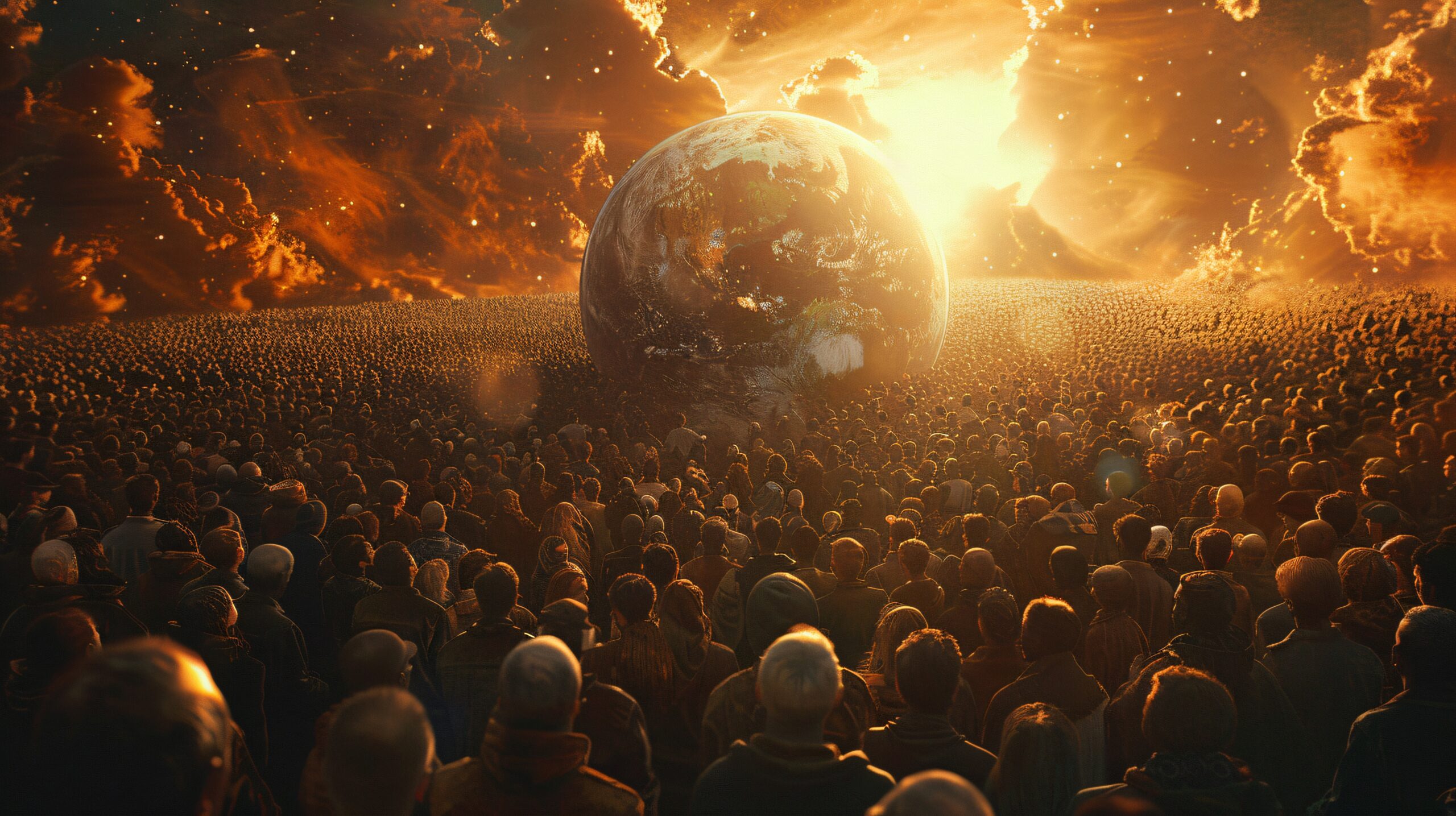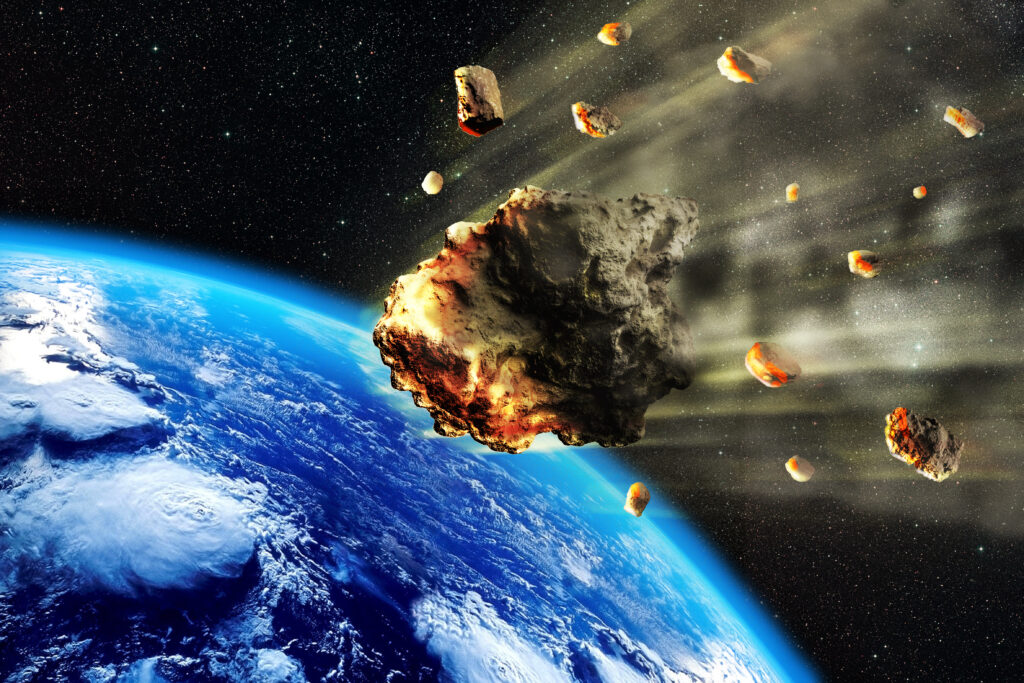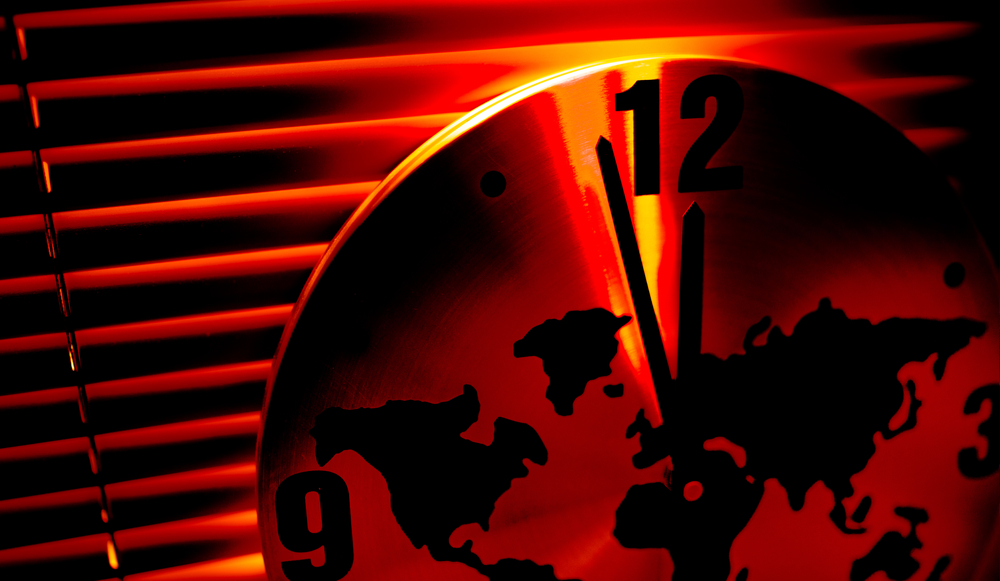Pastor Reveals ‘Exact Date’ Jesus Will Return to Earth and Warns of Future ‘Chaos and Destruction’

Ever been so hooked on a story you just had to know how it ends? Maybe you peeked at the last page of a book or Googled a movie spoiler. No judgment here. We all have that urge to know what’s coming, especially when the story of our world feels chaotic.
Headlines are screaming, phones are buzzing, and it feels like we’ve all been dropped into a movie without a script. And into all that noise, someone has just shouted out what they claim is the ending. A story about a vision, a final date, and coming destruction is spreading like fire online, and millions are paying attention. But maybe this isn’t really about a date on a calendar. Maybe it’s about our deep need for a clear ending to a confusing story.
How the Countdown Started
So, where did this specific date come from? The story starts with a South African pastor named Joshua Mhlakela. He claims that after intense prayer and fasting, he received a direct vision. In his own words, “I saw Jesus sitting on his throne… He says to me on the 23rd and 24th of September 2025, ‘I will come back to take my church.'”
He didn’t share this message from a massive stage or on a global TV network. He shared it in a YouTube interview. And from there, it exploded. The internet did what it does best: it took a story from one corner of the world and made it a global headline in days. Suddenly, a relatively unknown pastor’s vision was being discussed by millions.

The prediction got a huge boost when it was picked up by Jonathan Cahn, a well-known American author. Cahn pointed out a detail that made the claim feel more significant: the date, September 23-24, 2025, lines up perfectly with the Jewish holiday of Rosh Hashanah, also known as the Feast of Trumpets. For those who watch for signs, this was a big deal. T
he holiday’s main tradition is the blowing of a shofar, a ram’s horn, which sounds a lot like the biblical descriptions of a “last trump” that will announce Christ’s return. This connection to ancient tradition gave the vision a sense of weight and credibility it might not have had on its own. It’s a classic pattern: a personal vision gets amplified by an established system of belief, and a viral phenomenon is born.
Same Song, Different Decade

The latest prediction points to September 2025. It feels new, tying a pastor’s vision to ancient trumpet calls. But if you listen closely, you can hear a familiar tune. This isn’t a new song; it’s just a remix.
Go back to the 1840s. A group called the Millerites were so sure the world would end on October 22, 1844, they bet everything on it. They sold their farms and their homes. This wasn’t just an idea they liked; it was their entire reality. Can you imagine the feeling as they gathered, waiting? And can you imagine the crushing silence when the sun rose on a perfectly normal Wednesday? That day went down in history as the “Great Disappointment.”

Now jump to 2011. A radio host, Harold Camping, used thousands of billboards to announce Judgment Day was coming on May 21st. His followers spent their life savings to spread the word. When the day passed, he didn’t quit. He just said his math was a little off and gave everyone a new date. Even the 2012 Maya “apocalypse” scare showed that any deadline, religious or not, can grab hold of our imagination.
The technology changes—from paper pamphlets to giant billboards to viral videos—but the story stays the same. A date is named. People pour their hearts into it. The sun rises and sets. And then, the story has to be rewritten.
The Story We Tell Ourselves
Here’s where it gets really interesting. Why do people stick around after the prediction fails? Why do some believe even harder? It has less to do with faith and more to do with the simple, painful reality of the human ego.
Think about it. If you invested your life savings in a business everyone warned you against, what’s easier to say when it fails? “I was wrong,” or “The idea was brilliant, the market just wasn’t ready”? Admitting a massive mistake is a huge blow. It’s often easier to change the story than to change your mind.
There’s a name for that feeling—that deep, uncomfortable knot in your stomach when reality crashes into what you believe. Psychologists call it cognitive dissonance. But you don’t need a textbook to understand it. It’s the feeling of being proven wrong after you’ve bet everything on being right. To escape that feeling, people don’t abandon the belief; they adjust the story. The Millerites decided the date wasn’t wrong, just the event—it was a spiritual cleansing, not an earthly return. They doubled down, and their group survived.
Social media puts this on overdrive. The second you feel a little doubt, your phone will show you a hundred other people who still believe. Your world becomes an echo chamber that makes the new, rewritten story feel like the only truth that matters.
The Clear Rule Everyone Seems to Miss

With all the focus on cracking a secret code, one of the clearest instructions in the Bible gets lost. The end isn’t presented as a puzzle to solve. It’s meant to be a surprise. The words of Jesus on the subject couldn’t be more direct:
“But about that day or hour no one knows, not even the angels in heaven, nor the Son, but only the Father.”
That’s not a riddle. It’s a boundary. It’s followed by warnings that the end will come “like a thief in the night”—when you least expect it. The point isn’t to be a detective, trying to solve the big mystery. The point is to live in a way that you’re always ready, no matter when the day comes. It’s a call to be present, not to be a prophet.
The Real-World Damage of a Doomsday Clock

It’s easy to look at this as just an interesting internet story. But for the people living inside that story, the damage can be very real. There’s a hidden cost to constantly waiting for the end.
It’s the family dinner that ends in shouting, driving a wedge between people who love each other but can’t agree on reality. It’s the retirement fund, built with a lifetime of work, given away because money supposedly won’t matter soon. It’s the young person who gives up on their dreams—of college, of a family, of a career—because they’ve been told there’s no future to build toward.
And it’s not just about money. It’s about the heavy emotional weight of living in constant fear and anxiety. When the day comes and goes, what’s left behind isn’t just disappointment. It’s often a deep crisis of faith, shame, and a feeling of being completely lost. These predictions aren’t harmless fun; they leave scars.
The Power of Right Now

Fear is a magnet for our attention. It’s easy to get sucked into the countdown, constantly looking up at the sky. But when we do that, we miss what’s right in front of us. Life isn’t the waiting room; it’s the main event.
The best way to prepare for a future you can’t predict isn’t by decoding prophecies. It’s by building a better present. By fixing that broken relationship. By choosing kindness when the world is angry. By adding something good to your community. The future isn’t something that happens to you; it’s something you build, one choice at a time.
So, stop trying to read the last page of the book. The story you are living today is far more important. Don’t just wait for the final chapter. Go out and write a great one.
Featured Image Credit: Freepik
Loading...

